SiGNE Project Partners
SiGNE Project Partners

University of Limerick
The University of Limerick (UL) is an energetic and enterprising institution with a proud record of innovation and excellence in education and research. Research at UL is renowned for its close alignment to real world problems and the university has an enviable reputation in fundamental research, which can have real impact on society and the economy alike. We value creativity, curiosity and excellence in our inclusive community which is committed to social good. UL’s motto Eagna chun Gnímh translates as Wisdom for Action reflecting their mission to contribute to the discovery of new knowledge for a better world.
The Bernal Institute in the University of Limerick was launched in November 2016 to promote scientific excellence and stimulate the Irish and global community in the area of materials research. Battery research is conducted within the Molecular and Nano Materials research cluster, which combines expertise in materials synthesis, electrochemistry, state of the art analytical methods and materials modelling. Bernal researchers, Hugh Geaney and Tadhg Kennedy at the Institute are addressing the Energy global challenge and aligned to the UN Sustainable Development Goals for sustainable cities and communities, affordable and clean energy, climate action and responsible consumption and production. Society and Technologies demand for more powerful mobile devices with longer range and market need for convenience of faster charging for electric vehicles has placed lithium-ion battery research and development as one of the most critical challenges to be solved.

Thermal & Material Engineering Center
Thermal & Material Engineering Center LLC is a Ukraine-based enterprise established as an R&D company by a group of leading scientists with a long-term experience in engineering in order to boost smart thermal solutions in industrial technologies. TMEC’s history goes back to 2002 when we started our business activity as a part of two Departments, Thermal Industrial Engineering and Industrial Furnaces, of the National Metallurgical Academy of Ukraine. To get closer to our customers on the global market in 2018, our team evolved into an independent company with a wide range of services from fundamental research to full functioning up-scale industrial products. We provide: Innovations in petrochemical, metallurgical and mining industries Engineering of Lab and Industrial Units with specific focus on fluidized and fixed bed reactors Electro-thermal fluidized bed solutions Optimization of furnaces’ operating modes Lab thermal treatment of carbon materials Energy management and audit Consulting and training service. Our priority is smart solutions applied in industrial technologies aiming at energy efficiency with low environmental footprint.

Sapienza University of Rome
The University of Rome La Sapienza is one of the oldest and largest Universities in Europe and its mission is to contribute to the development of a knowledge society through research, excellence, quality education and international cooperation. The Materials Thermodynamics research group is sited in the Department of Chemistry and can profit from the very wide range of equipment available at lab/department/university levels and can exploit the strong expertise in the battery materials field available within the research staff of the department (active materials synthesis, electrode formulation optimization and manufacture, physico-chemical and electrochemical characterization, advanced materials modeling).
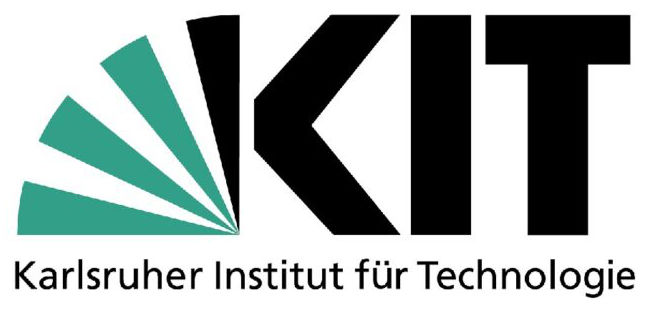
Karlsruher Institut für Technologie
The Karlsruhe Institute of Technology (KIT) is a higher education and research organization, bundling the missions of a university of the state of Baden-Wuerttemberg and of a large-scale research institution of the Helmholtz Association. Within these missions, KIT is operating along the three strategic fields of action of research, teaching, and innovation. In establishing innovative research structures, KIT is pursuing joint strategies and visions. KIT is one of eleven Universities of Excellence in Germany and is devoted to top research and excellent academic education as well as to being a prominent location of academic life, life-long learning, comprehensive advanced training, exchange of knowhow, and sustainable innovation culture.
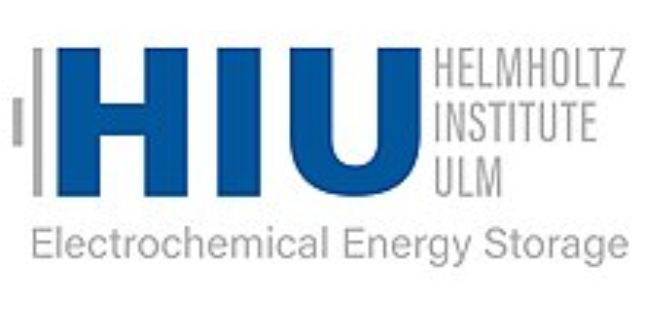
Helmholtz Institute Ulm
The Helmholtz Institute Ulm (HIU) has been co-founded in 2011 by the KIT, Ulm University, the German Aerospace Center (DLR) and the Center for Solar Energy and Hydrogen Research (ZSW) as the German center of excellence in the field of electrochemical energy storage and has rapidly achieved worldwide recognition, positioning itself among the leading research institutions in this field. Within the SiGNE project, KIT-HIU is taking the lead in exploring synthesis routes for single-crystalline Ni-rich cathode materials for high energy density batteries. Furthermore, different coatings are tested for the Ni-rich active materials to enable an aqueous electrode fabrication.
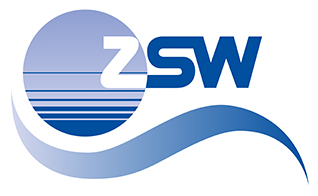
Zentrum für Sonnenenergie- und Wasserstoff-Forschung Baden Württemberg
The ZSW was established in 1988 by the State of Baden-Württemberg, the universities of Stuttgart and Ulm, and private companies. It is a non-profit foundation under the civil code. The ZSW contributes to the development of solar energy, energy conversion, and electrochemical energy storage systems – major components in the sustainable energy supply of the 21st century. It is integrated in a network of university, industrial, and institutional co-operations. The focus of research and development is currently on Lithium-ion batteries, super-capacitors, fuel cells and thin film photovoltaic.
The ZSW has about 220 employees (scientists and technicians) with experience in materials science, electrochemistry, physics, electrical and mechanical engineering and technology). The battery research team at ZSW consists of more than 70 researchers covering different research areas. The ZSW has a high level of expertise in both material research for Lithium-ion batteries and system technology for batteries and fuel cells. Additionally, the ZSW has a wide base of equipment and experience in the characterisation of battery materials and components as well as in battery testing and hazard potential evaluation. ZSW has established a pilot-line for technical development of electrode coatings and cell assembling for 18650 and small stacked pouch cells, and, furthermore, runs a research-production line (FPL) for the manufacture of PHEV1 prismatic hard case cells. By covering the whole value-chain from fundamental material development and Scale-up to the research production of large cells, safety and performance test labs, ZSW has a unique position in the battery research community.
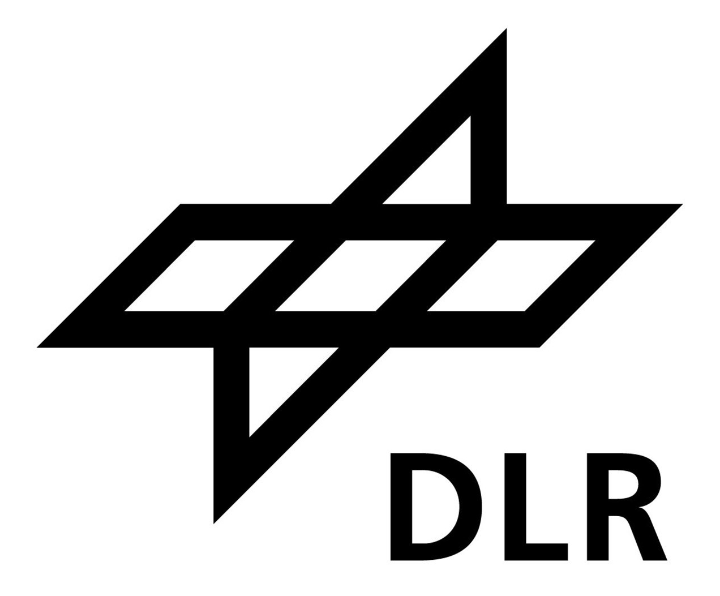
DLR - Institute of Engineering Thermodynamics
DLR is the national aeronautics and space research center of the Federal Republic of Germany. Its extensive research and development work in aeronautics, space, energy, transport and security is integrated into national and international cooperative ventures. In addition to its own research, as Germany’s space agency, DLR has approximately 8000 employees at 16 locations in Germany: Cologne (headquarters), Augsburg, Berlin, Bonn, Braunschweig, Bremen, Goettingen, Hamburg, Juelich, Lampoldshausen, Neustrelitz, Oberpfaffenhofen, Stade, Stuttgart, Trauen, and Weilheim. DLR also has offices in Brussels, Paris, Tokyo and Washington D.C.
The DLR-Institute of Engineering Thermodynamics is active in the fields of renewable energy research and technology development for efficient and low emission energy conversion and utilization with two sections and around 75 persons. The Department of Computational Electrochemistry (CEC) has strong expertise in modelling and simulation of batteries (Lithium-ion, Metal-Sulfur and Metal-air batteries) and fuel cells (SOFC, PEFC and DMFC ). 16 researchers are working in the field of batteries, mainly in the field of Lithium Ion, Metal-sulfur and Metal-air batteries. The battery modelling activity of CEC is integrated in the Helmholtz Institute Ulm for Electrochemical Energy Storage, a joint-venture of Karlsruhe Institute of Technology, University of Ulm, Center for Solar Energy and Hydrogen Research Baden-Württemberg, and the German Aerospace Center.
The division is modeling physico-chemical processes inside batteries – from the nanoscale to the macroscale making use of rigorous methods from non-equilibrium thermodynamics, electrochemistry, statistical mechanics and numerical mathematics. We model degradation effects in state-of-the-art Lithium batteries and are committed to the optimization and understanding of next-generation batteries with various electrolytes and electrode designs. DLR has been active in European Framework actions and is involved in Horizon 2020 activities.
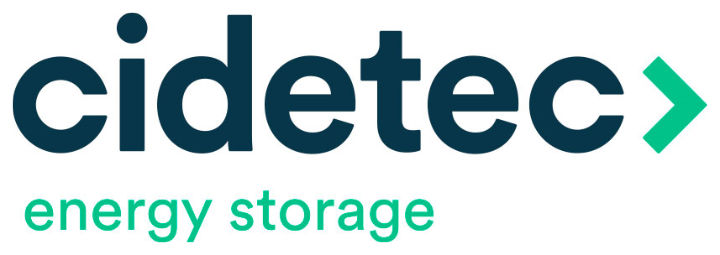
Cidetec
CIDETEC is a private organization for applied research founded in 1997. Located in the city of Donostia-San Sebastián, CIDETEC is divided into three international technological reference institutes in Energy Storage, Surface Engineering and Nanomedicine. CIDETEC Energy Storage is specialized in creating new battery technologies (including lithium metal solid state batteries) according to specific challenges, and its ultimate transference to the industry. The institute has the capacity to develop complete products and processes and offers material validation, pilot manufacturing, pack engineering and battery testing services. CIDETEC Energy Storage is also a regular participant and coordinator in H2020 European funded projects (SI-DRIVE, SPIDER, IMAGE, SAFELIMOVE, E-Magic, VIDICAT and COFBAT EU etc.) dealing with different types of solid electrolytes and advanced battery technologies. Finally, CIDETEC Energy Storage is involved as well in the core team of BATTERY 2030+, the initiative for a long-term large-scale research program towards the European battery of the future. CIDETEC Energy Storage involves more than 100 specialized researchers distributed into two technological units: Materials for Energy -80 researchers with a background of chemistry, electrochemistry and materials- and Systems Engineering -25 researchers: electrical and mechanical engineers.
In SIGNE project, CIDETEC Energy Storage will be responsible of the full cell harmonisation of SIGNE cells (WP5). This activity includes the slurry formulation and processing of anode and cathode materials, the integration of glyoxal electrolytes and fibre separators to the full cell system and the cell prototyping to small pouch cell level (0.1 Ah-0.5 Ah). CIDETEC will also bring its know-how on anode development (WP1), cathode development (WP3), cell standardisation (WP6), LCA assessment (WP7) and cell testing of 51 Ah prototype cells (WP8).

Sidrabe
SIDRABE has been designing and manufacturing vacuum coating systems and developing unique thin film technologies for more than 50 years. They offer development and implementation of thin film technologies; customized vacuum coating systems; optimized and cost-effective product solutions; contract R&D and contract design engineering.
A variety of processes have been implemented successfully in SIDRABE equipment for many applications: Coating of polymer films and metal foils; Coating of metal strips; Coating of large-size flat glass; Coating of large-size astronomical mirrors; Coating of artificial diamond and various powders; Protective and decorative coating of 3D articles; Substrate pre-treatment using ion sources; Vacuum lamination and Vacuum drying of webs. The quality management system embraces all stages of the product cycle and their achievement of ISO 9001:2008 and ISO 14001:2004 certification represents their efforts to keep the high standard driven working practice.

Papierfabrik Wattens GmbH & Co KG – Delfort
For more than 460 years, Delfort have been passionately dedicated to specialty paper! Today, they produce highly functional specialty papers.
They operate a state-of-the-art innovation center, on location, to develop the next generation of specialty papers for and with their customers. They do this sustainably – not only with regard to the environment but in consideration of their team, which forms an essential part of our success. Their assets, machinery and processes are state of the art and well prepared for your future innovations. Their IonPort fiber based separators support fast charging and discharging by tis optimised resistance, hich improves ion-flow and enhances battery performance.

Ferrari S.p.A.
Born of the spirit of racing, Ferrari epitomises the power of a lifelong passion and the beauty of limitless human achievement, creating timeless icons for a changing world.
Tradition always stems from innovation. The ongoing quest for lasting firsts is what fuels the Ferrari legend. Their ability to combine revolutionary technological solutions with exceptional artisanal craftsmanship is what enables them to create icons that stay timeless in a fast-changing world.
Their talented individuals are Their greatest resource. However, they can only pursue the extraordinary by working together as a team. By fostering integrity, excellence, and generosity, they give each of their people the possibility to express their own full potential – and to be part of something greater.
Ferrari’s racing spirit lives on in emotions that transcend the road and the track, ultimately becoming an attitude to life. Nothing excites Ferrari more than setting ambitious targets and expectations and then exceeding them, to push every boundary. It is how the power of passion becomes the beauty of achievement.

Analog Devices International Unlimited Company
ADI’s customers are at the center of their identity, and they are endlessly committed to their success. They listen to their customers and anticipate their needs, working with and alongside them to reduce complexity and co-create the innovations that disrupt markets and help solve the world’s most pressing challenges. Whether discussing the role of technology in helping to mitigate global sustainability concerns or rolling up our sleeves and designing solutions at the Intelligent Edge, ADI has the industry and technology expertise to help our customers succeed.
Their solutions help customers transform raw data into actionable insights and make connected devices smarter and more responsive. With their analog and mixed-signal devices, power management, radio frequency offerings, and edge processors and sensors, we harness and activate the data that bridges the physical and digital worlds.
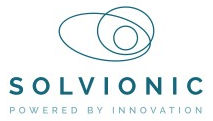
Solvionic
Solvionic is a SME, expert in the design, synthesis and production of ionic liquids and safe electrolytes for Li-ion batteries, supercapacitors and related devices. They are developing nonflammable electrolytes for next generation batteries that contains next generation high voltage cathodes and anode materials. Solvionic portfolio accounts hundreds of electrolyte references. Their production facilities and strategy allow fast and reliable scale-up, to commit with customers roadmap.
With the help of the partners, their main role in SIGNE is the design and formulation of innovative electrolytes as well as the evaluation of their physical properties and electrochemical performances. This will include upscaling for prototyping activities, and providing data for recycling, LCA and cost assessment.

Friedrich-Schiller-Universitat Jena
The Friedrich Schiller University Jena is one of the oldest universities in Germany. Founded in 1558, it is now the largest university in Thuringia and shapes Jena’s character as a forward-looking and open-minded city. It attracts students and researchers from all over the world. Tolerant cooperation and the exchange of scientific ideas across boundaries are firmly anchored in the University’s self-image. The University of Jena works closely with non-university research institutions and research-oriented companies and is an essential economic and innovation factor for the state of Thuringia and beyond.
Within SIGNE, the Friedrich Schiller University aims to collaborate with its partner to elaborate a new generation of high performance, non-toxic electrolyte formulations with enhanced sustainability.

TES RECUPYL SAS
Moving the needle on sustainability and climate change are KPIs for all of us. Sustainability is at the heart of everything we do; it’s embedded in our core values, the services we provide and our embrace of the circular economy. Businesses that want to improve the way they manage their technology asset lifecycle turn to TES. With a true global reach, they offer teams where you are, who understand how you work and what you need. Their 40+ owned facilities across 20+ countries offer unmatched service level consistency, consistent commercials, lower logistics costs, local compliance experts in-region, support in local time zones and languages, and a deep understanding of transboundary movement globally. In the landscape of IT services where many providers can seem the same, TES stands apart.
